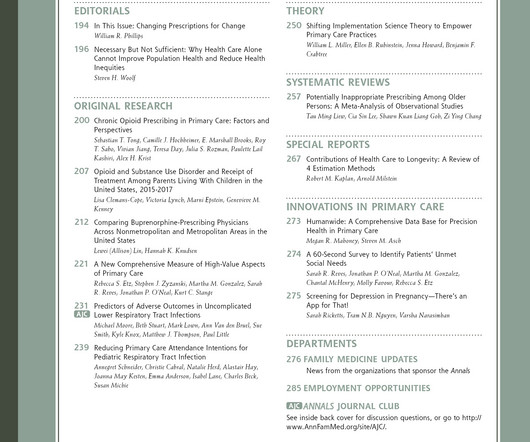An Open Letter to Robert F. Kennedy, Jr. On Why Integrated Care Should Be a Cornerstone of the HHS Agenda
Integrated Care News by CFHA
APRIL 16, 2025
CFHA represents thousands of professionals across the country who are implementing integrated care —the coordination of medical and behavioral health care in primary care and specialty settings. Also encourage state Medicaid offices to renew efforts to limit regulation related to integrated care practices.












Let's personalize your content